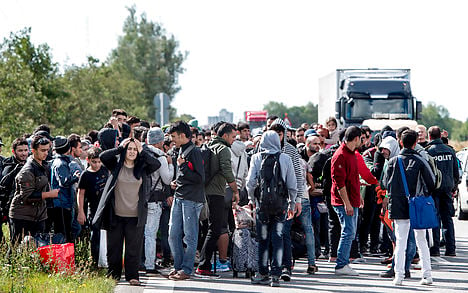Ruling Venstre, the anti-immigration Danish People’s Party and now also the left-of-centre Social Democrats will make tougher demands for residents to obtain family reunification and permanent residency. Among other things they propose changing language requirements so that applicants will have to pass the Danish 2 (Dansk 2 or PD2) exam, whereas today the rules state that one must only pass Danish 1 (Dansk 1 or PD1). The government has also introduced a language bonus which expresses the same line of thought.
Today there is the demand that those who recently arrived under the family reunification scheme must pass the A1 Danish test within six months. This is a very simple test that nearly almost everyone will pass. It should not be confused with Dansk 1, which consists of six modules and is at a much higher level.
Using the three Danish language education levels to make stricter demands on immigrants is a sign that politicians (and even their civil servants) have not understood how these educations were designed.
There are three parallel educations within Denmark’s system of free Danish language training for foreigners. These are organized according to the ability the pupils will have for learning Danish. Danish 1 (PD1) is for pupils with little or no schooling from their home country or with trauma or other issues that limit their capacity to learn. Danish 2 (PD2) is for pupils with an ordinary school background, and Danish 3 (PD3) is for people with a longer education and knowledge of other languages. The three educations each consist of modules that are passed gradually – the last module in each programme being Module 6, and on top of this is a special study test (studieprøve) within Danish 3, which gives access to higher education in Denmark.
Pupils do not choose which of the three educations they start in, and they don't pass from Danish 1 to Danish 2, when they finish the six modules of Danish 1. Some pupils succeed in moving from Danish 1 to Danish 2 along the way, or might continue in VUC (adult education centres) to improve their skills. After graduating from Danish 1 it is possible to pay to continue in Danish 2, but very few people choose that option.
Pupils also cannot determine how many hours they attend language school. This is planed from the municipal job centre and is supposed to be combined with job training or internships. Most foreigners start out by going to language school four hours a day, three days a week. Those who want to learn Danish faster and ask for more hours will not necessarily get them. Far from all municipalities have an offer of help with homework. Thus, how quickly one can learn Danish is limited and does not consider the individual’s own motivation and wishes.
In other words, people who were unfortunate enough to have limited schooling in their home country or have been exposed to trauma or other things affecting their ability to learn, are excluded from family reunification, from financial language bonus and from permanent residency. As participating actively in language education is already mandatory, politicians cannot argue that an incentive for learning Danish is needed – it is already there.
If politicians actually do understand the way the language education is designed, the only logical conclusion is that they must explicitly wish to put people with poorer educational skills than others in a weaker legal position in Denmark.
Editor's note: The government has similarly changed citizenship requirements so that applicants now will have to have completed Danish 3 instead of Danish 2.
Michala Clante Bendixen is the chair of Refugees Welcome and the editor-in-chief of Refugees.dk, where this column was originally published. It has been edited and republished with the author's permission.



 Please whitelist us to continue reading.
Please whitelist us to continue reading.